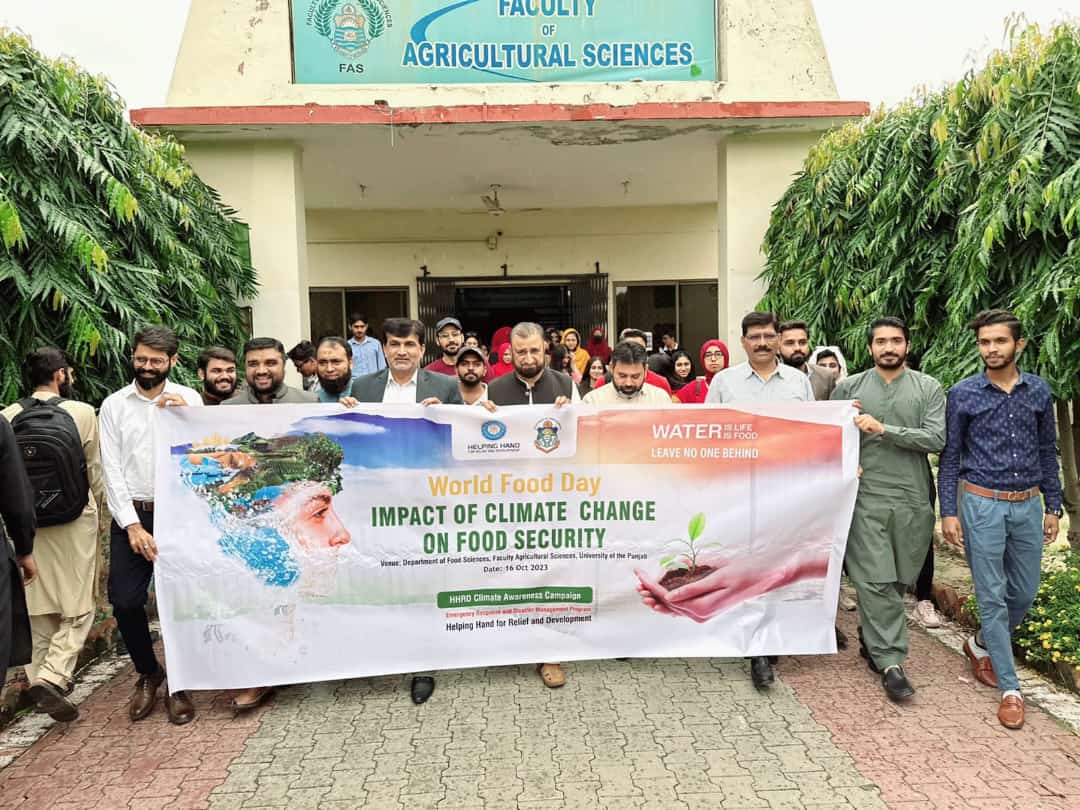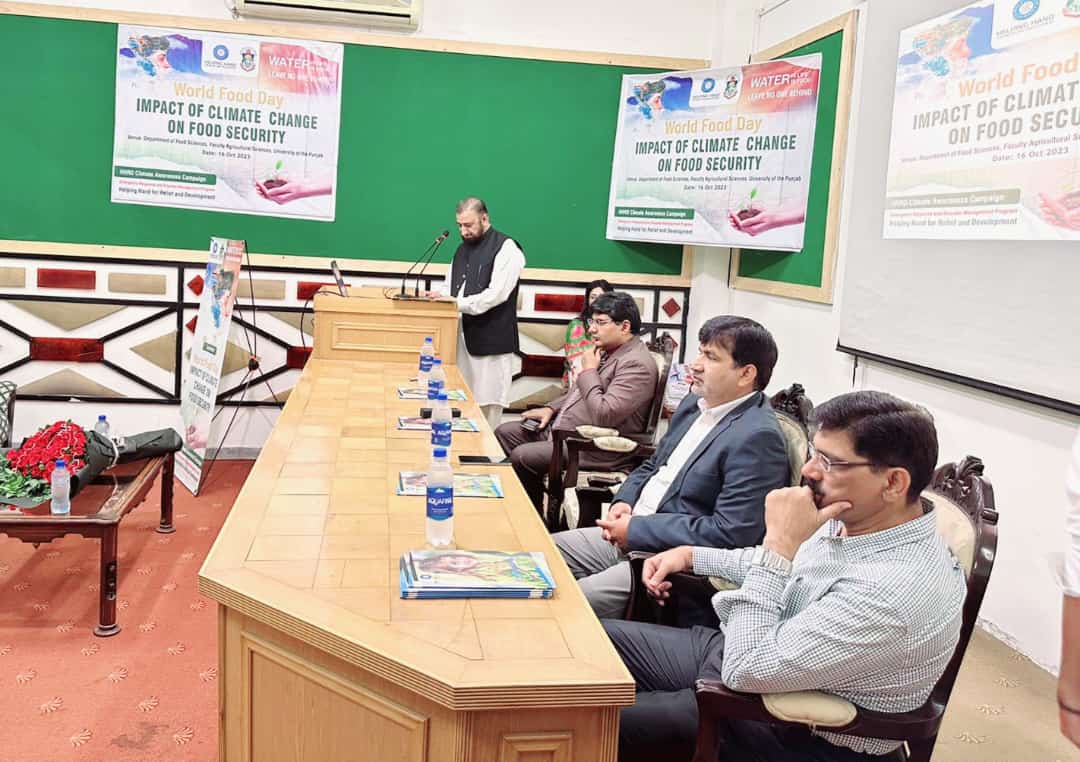By Our Web Reporter
LAHORE MIRROR – The Helping Hand for Relief and Development (HHRD) of Pakistan, in collaboration with the Department of Food Sciences at the Faculty of Agricultural Science, Punjab University, Lahore, organized an awareness seminar titled ‘Impact of climate change on food security in Pakistan’.
The seminar followed by the awareness walk under the theme ‘Water is Life Water is Food’ was also conducted, led by Prof. Dr. Muhammad Saleem Haider, Dean of the Faculty of Agriculture Sciences at Punjab University. He was flanked by Sajid Ali, Head of Operations at HHRD, along with senior faculty members, and a large number of students participated.
The distinguished guest speakers at the seminar included Dean Faculty, Dr. Saleem Haider, Chairman of Food Sciences, Dr. Shanawar Waseem Ali, President of the National Alliance for Safe Food, Rana Awais Khan, Head of Quality Assurance at Yums Group and former DD Food, Dr. Mubeen Awan, and climate specialist Dr. Arshad Javed.
They addressed the topic of ‘Impact of Climate Change on Food Security.’ Regional Coordinator Central Punjab Tauseef Sardar Awan introduced HHRD, and the Manager of Operations highlighted HHRD’s contributions towards the zero-hunger goal. It was highlighted that the production in the Asia region is currently lower than its consumption.
Moreover, climate change has posed severe food security threats to the region, with floods in 2022 causing $3.7 billion in losses to food systems. There is a pressing need to enhance production through support to smallholders and the introduction of high-yield varieties and improved breeds.
“In Pakistan, 184 million people cannot afford a healthy diet. One-third (1/3) of the world’s population faces limited water access, and 783 million people worldwide experience food insecurity. Pakistan may confront absolute water scarcity by 2025 due to inadequate policy planning, research, population growth, climate change, and inefficient water management. Climate change has both direct and indirect impacts on the agricultural production system, driven by rising temperatures and shifting rainfall patterns,” experts emphasized.
The seminar highlighted sustainable agriculture’s role in addressing climate change by optimizing production and minimizing carbon footprint. It also underscored the importance of resilient farming systems. The event showcased collective action and youth advocacy for climate change, demonstrating HHRD’s commitment to fostering sustainable solutions.


